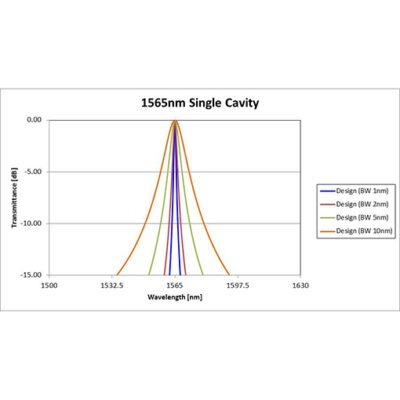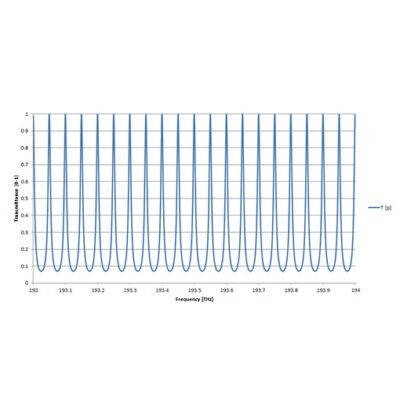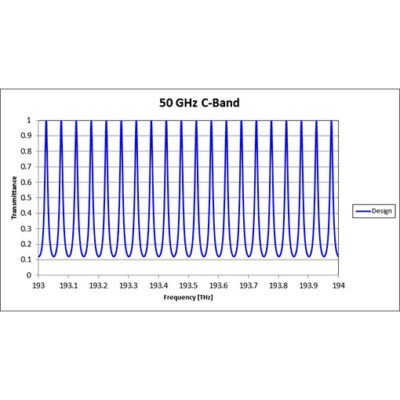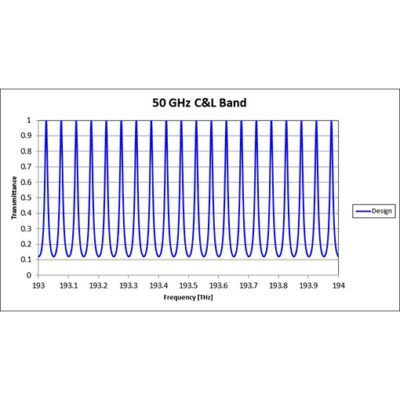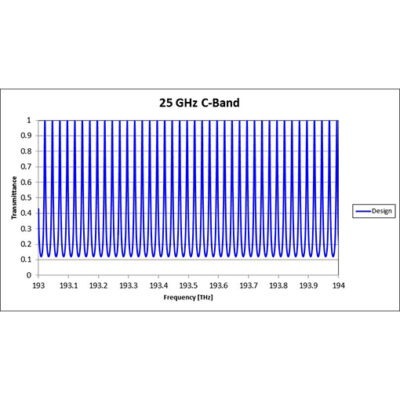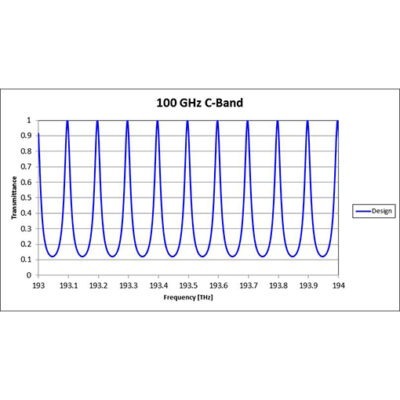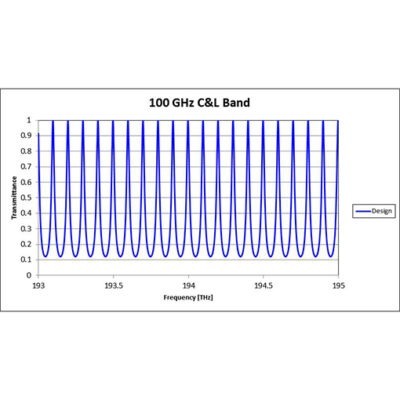Etalon Filters
Etalons, when used in transmission mode, have a series of transmittance peaks with periodic frequency spacing and are typically used in telecom for wavelength locking. Etalons are characterized by their Free Spectral Range (FSR) – the frequency spacing between peaks – and their Finesse – which essentially governs the shape of the transmission peaks.
Etalon filters typically consist of a single spacer layer with two reflector stacks on either side. For FSR values below 1000 GHz, the spacer is usually fabricated from a substrate material (rather than grown in thin film deposition). For etalon quality, the parallelism of the substrate needs to be better than 1-5 arc-seconds.
Different substrate materials are chosen depending on the application – fused silica is used when the etalon FSR and peak variation with temperature is to be minimized while Si is used when a high FSR temperature coefficient is required for thermal tuning.
Iridian fabricates high quality fused silica and Si etalons at competitive prices with FSR values in the range of 12.5 GHz to 500 GHz, with finesse values as required by the customer’s application. The etalon substrate material is polished in-house to a very high precision and accuracy: as an example, Iridian is able to fabricate 12.5 GHz solid etalons with a FSR tolerance < +/-0.003 GHz over a wavelength span of 1520-1570 nm. Here are some typical fused silica etalon products manufactured by Iridian. Iridian also manufactures custom etalons specifically tailored to the customer’s applications.
| Graph | Free Spectral Range | Operating Wavelength [nm] | Product |
|---|---|---|---|
 | 100 +/- 0.04 | 1520 ~ 1620 | 100 GHz C-L Band |
 | 100 +/- 0.02 | 1520 ~ 1570 | 100 GHz C Band |
 | 25 +/- 0.005 | 1520 ~ 1570 | 25 GHz C Band |
 | 50 +/- 0.01 | 1520 ~ 1620 | 50 GHz C-L Band |
 | 50 +/- 0.02 | - | 50 GHz C Band |
 | - | - | Dispersion Compensating Etalons |
 | - | - | Single Cavity Etalons |
Showing all 7 resultsSorted by latest



